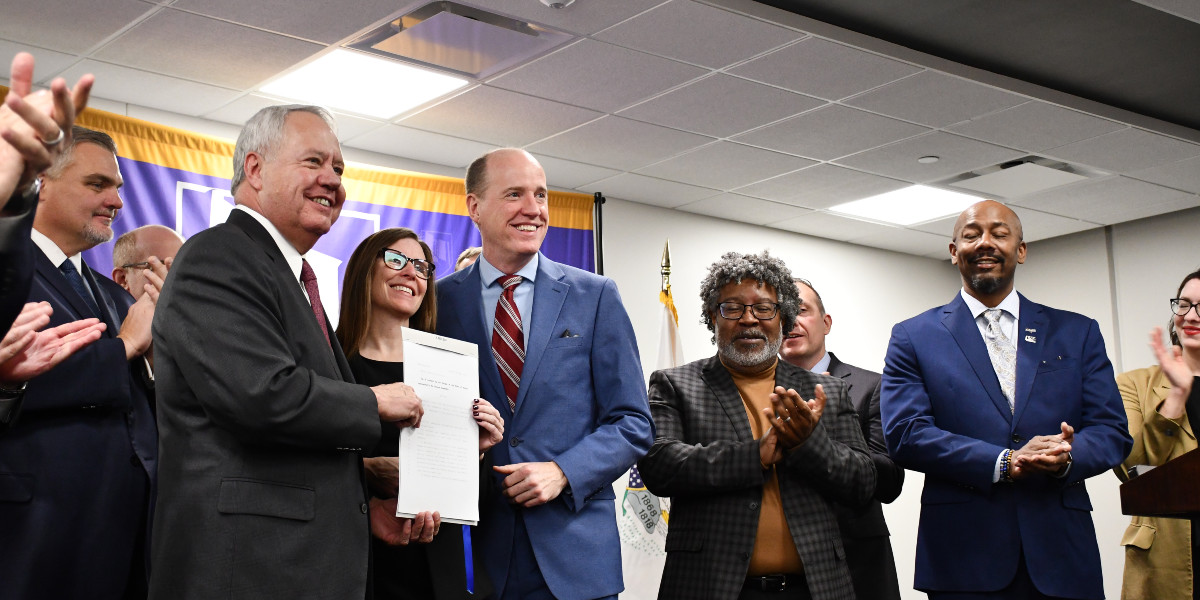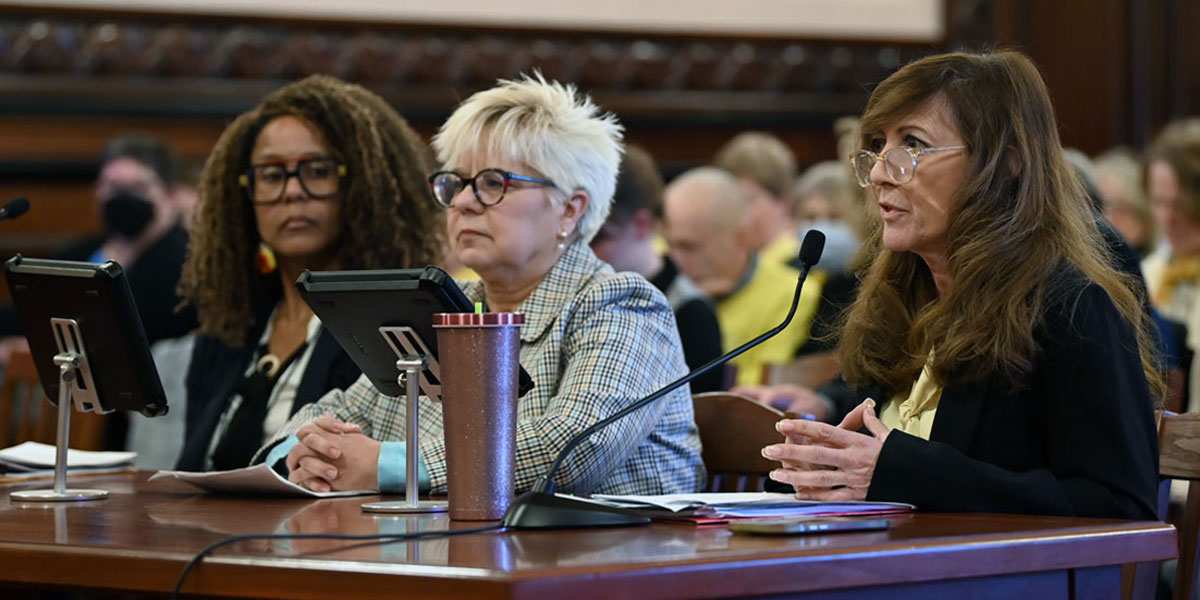Guzmán calls for progressive revenue in recent press conference
- Details
 SPRINGFIELD—In solidarity with home health workers, teachers, homelessness advocates, and other state officials, State Senator Graciela Guzmán advocated for the Fiscal Year 2027 budget to utilize progressive revenue measures, ensuring essential programs like the Supplemental Nutrition Assistance Program and Medicaid do not face cuts from a shortage of federal dollars.
SPRINGFIELD—In solidarity with home health workers, teachers, homelessness advocates, and other state officials, State Senator Graciela Guzmán advocated for the Fiscal Year 2027 budget to utilize progressive revenue measures, ensuring essential programs like the Supplemental Nutrition Assistance Program and Medicaid do not face cuts from a shortage of federal dollars.
“Parents are anxious about being able to afford food on the table while billionaires are ordering catering to their fleet of yachts,” said Guzmán (D-Chicago). “This gross disparity between our lived experiences is not okay. We need to make sure our most wealthy are paying their fair share, because cutting essential programs for the working families that make up the heart of Illinois isn’t an option. We cannot balance this budget by cuts to working class people that are already hurting.”
Read more: Guzmán calls for progressive revenue in recent press conference
Fine highlights plan to restrict hiring of ICE agents
- Details

SPRINGFIELD, IL – State Senator Laura Fine called a press conference on Wednesday to outline crucial legislation that would protect families and curb ICE intimidation by preventing newly hired ICE agents from serving as law enforcement officers in Illinois.
“Police officers occupy positions of public trust. Given widespread concern over ICE’s violent tactics, allowing current ICE agents to police local communities undermines that trust and should be prohibited,” said Fine (D-Glenview). “My district is one of many communities across the state that has repeatedly voiced concerns about increased ICE activity in our neighborhoods, schools, shopping centers and public spaces, and it’s time we take action against threats to public safety.”
Read more: Fine highlights plan to restrict hiring of ICE agents
Belt’s measure to allow volunteer fire departments to receive state grants
- Details

SPRINGFIELD – State Senator Christopher Belt advanced a measure that would allow volunteer fire departments to apply for and receive state grants through the Office of the Illinois State Fire Marshal.
“We have several volunteer fire departments in the Metro East that would be able to take advantage of new funding,” said Belt (D-Swansea). “Right now, only city-run fire departments have access to state grants for equipment and building upgrades, this will change that.”
Read more: Belt’s measure to allow volunteer fire departments to receive state grants
Senate Democrats highlight over $17 million awarded to pre-apprenticeship programs across the state
- Details

CHICAGO — Thanks to the Illinois Senate Democratic Caucus more than $17 million in funding is being sent to 39 program recipients to expand the Illinois Works Pre-Apprenticeship Program. The program, which serves up to nearly 2,000 community members statewide, creates a qualified talent pipeline of diverse candidates in the construction and building trades.
“The Illinois Works Pre-Apprenticeship Program is essential to expanding opportunities for individuals in the construction trades,” said Senator Christopher Belt (D – East St. Louis). “I’m thrilled to see the continued success of this program and its critical impact on Illinoisans, particularly those from communities historically underrepresented in the trades.”
The Illinois Works Pre-Apprenticeship Program launched in 2021 with the goal of increasing diversity and access to apprenticeship programs. Comprehensive pre-apprenticeship programs help participants gain admission to apprenticeship programs, which provide a greater opportunity to obtain employment in the construction trades and secure a lifelong career.
More Articles …
Page 1 of 734
























 © 2026 Illinois Senate Democratic Caucus
© 2026 Illinois Senate Democratic Caucus